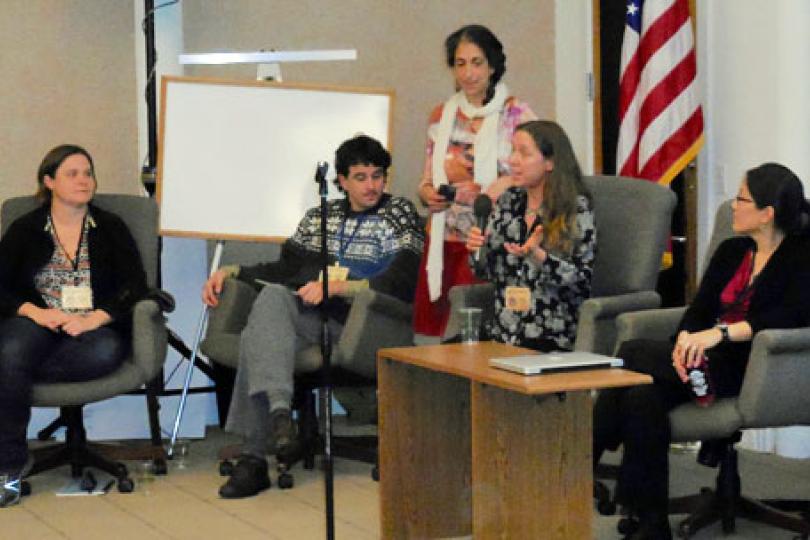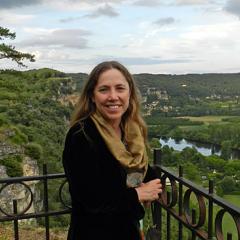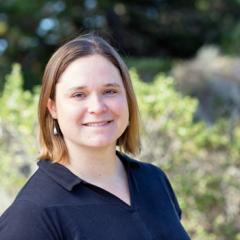The Most Urgent Untold Environmental Stories of our Time
In today’s media-inundated world, we know that stories resonate for people, regardless of the format in which a story is presented. The ways in which we try to share our stories and connect with others, in hopes that they too can share our passion for an issue or commitment to act, are many and varied.
On Friday, January 16, 2016, I had the pleasure and honor to join four Switzer Fellows who presented their “untold environmental stories” to an audience of 80 people during one of the activist workshops at the Wild and Scenic Film Festival in Nevada City, California. The setting of the Film Festival was perfect in that the audience was already interested in environmental issues and could readily take the messages from our Fellows back to their communities and organizations.
I initiated the panel discussion with a comparison of the results we got from our recent survey of Fellows and the general public in which we sought opinions about the key environmental issues and solutions of our time (more on those results coming soon!). The four Fellows who spoke at the event covered a wide range of current and relevant topics. We first heard from Sue Chiang (1997), Pollution Prevention Director and Healthy Energy Campaign Director at the Center for Environmental Health. She focused on fracking in California, and expanded on that by noting that California is the third largest producer of oil and gas in the country. The footprint of this industry in California is having a growing impact. The ongoing gas leak at the Porter Ranch community has already displaced over 2,000 people, many of whom have suffered serious health effects from the exposure which began in October 2015, which was not hailed as a state emergency by Governor Brown until January 6th of this year. Sue further noted, as was described in a Los Angeles Times article about the leak, that 30,000 kilograms of methane are being released per hour, and as of late December the leaking well had released the equivalent of 1.6 million metric tons of CO2 – “more greenhouse gas emissions than 330,000 passenger vehicles produce in a year.”
Dustin Mulvaney (2004) is an Associate Professor of Environmental Studies at San Jose State University, and he embodies the true balance of an academic expert using his knowledge and experience for applied problems. Through his consulting company, Ecoshift Consulting, which focuses on supply chain and life cycle analysis with a focus on energy industries, Dustin and his colleagues researched the extent of known fossil fuel resources on federal public lands. The report, commissioned by the Center for Biological Diversity and Friends of the Earth, documented that an estimated 400-500 billion tons of CO2 emissions could be generated if all the known reserves were exploited, thereby pushing carbon emissions well beyond the limits set now by international agreement. This amount is equivalent to 13 times the global carbon emissions in 2014 or annual emissions from 118,000 coal-fired power plants. The organizations involved are now calling for an end to fossil fuel leasing on all federal pubic lands. Success may be on its way – during the festival, President Obama declared all coal reserves on federal public lands will not be leased or exploited. You can download the full report, a fact sheet, or read more about this issue in the Ecoshift blog.
While the economics of climate change is a matter less visible and understandable to most environmentalists, Frances Moore (2009), Ciriacy-Wantrup post-doctoral fellow in the Department of Agricultural and Resource Economics at UC Berkeley, gave the crowd a useful primer on how economists consider the social costs of climate change, and in particular, the social costs of carbon. It is easy to imagine how the accumulated economic impacts of reduced crop yields, lower labor productivity, and even increased violent crime will be felt through climate change-related disruptions to the global economy. But how will economists take this into account in order to put a true price on carbon that presently does NOT adequately include these externalities? Fran’s studies demonstrate that the social cost of carbon should be more than twice its current calculation in most economic models. Her studies and additional information is provided in the links below, and no doubt she will be making a difference in bringing light to this issue with a specific pathway for change in our economic models for climate change.
It is not often that an environmental story contains good news. Margaret Torn (1990), Program Head of Climate Change and Carbon Sciences at Lawrence Berkeley National Lab, presented the results of recent research that shows that “deep” decarbonization of our energy system is likely and can happen much sooner than we think. The main elements are energy efficiency, decarbonizing electricity generation and end-use fuel switching, such as with electric cars. What is so transformative and exciting about this possibility is that these transitions can occur over the natural replacement life of many of the products and energy systems we currently use. Significant reductions in fossil fuel energy are possible as more solar, wind, hydropower and biomass-based electricity generation come on line. For more information, the report is available via the links below.
All these stories give us hope knowing we have strong leaders working at the intersections of research and advocacy, policy and practice. Switzer Fellows are once again leading the way!
Additional Resources
View the Wild and Scenic Film Festival photo gallery
From Sue Chiang
Please visit CEH’s website for resources on the health impacts of fracking/oil & gas development: http://www.ceh.org/campaigns/fracking/resources/
From Dustin Mulvaney
Mulvaney, D., Gershenson, A., and Toscher, B. (2015). Potential Greenhouse Gas Emissions from Federal Fossil Fuels. A report for the Center for Biological Diversity and the Friends of the Earth. http://www.ecoshiftconsulting.com/wp-content/uploads/Potential-Greenhouse-Gas-Emissions-U-S-Federal-Fossil-Fuels.pdf
From Frances Moore:
Stanford researchers’ calculations reveal higher than expected global economic cost of climate change:
http://news.stanford.edu/pr/2015/pr-climate-change-cost-102115.html
Estimated social cost of climate change not accurate, Stanford Scientists say:
http://news.stanford.edu/news/2015/january/emissions-social-costs-011215.html
From Margaret Torn:
US Deep Decarbonization Technical Report and
US Deep Decarbonization Policy Report are available at:
http://usddpp.org/
The international DDPP website:
http://deepdecarbonization.org/
In addition, Margaret’s Arctic Research is described at:
http://ngee-arctic.ornl.gov/



